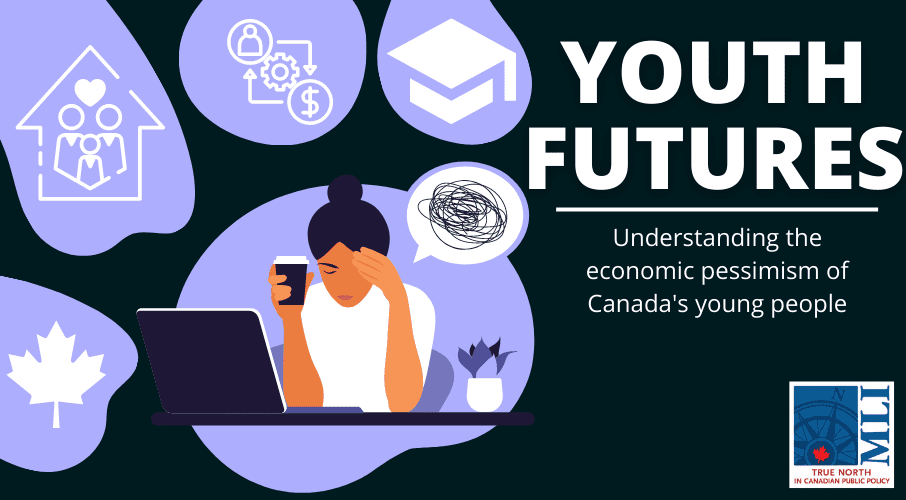OTTAWA, ON (September 13, 2022): As young Canadians conclude their first post-COVID summer, economic distress and an uncertain future loom large. New research undertaken by MLI reveals that less than half of young Canadians between ages 18 and 29 expect to enjoy a better standard of living than their parents.
“This pessimism seems to be the result of a wider realization,” argue Blair Gibbs and Aaron Wudrick, who have written an analysis of the research findings. “Making economic progress is harder for younger people than ever before.”
Participants expressed growing concern and frustration stemming from the cost of owning a home, growing pressures on the cost of living, post-COVID economic conditions, and more. For most, these kinds of bread-and-butter concerns ranked as having significantly greater impact than issues traditionally assumed to factor heavily in the minds of young people, such as climate change or poverty.
Most especially, young Canadians are acutely aware of the intergenerational nature of economic inequality and are supportive of a wide range of policies from across the political spectrum to rectify it. Sixty-eight percent of young people agree strongly (32 percent) or moderately (36 percent) that older Canadians have no real understanding of what it is like to be a young person nowadays.
These findings are part of a comprehensive, first-of-its kind study by the Macdonald-Laurier Institute. Findings were drawn from polling and focus group discussions. Full analysis of the polling is available here alongside an interactive version of the data set. More key findings are as follows.
Key Findings:
- Less than 40 percent of young Canadians expect to enjoy a better standard of living than their parents. Only 34 percent are optimistic that their earnings will increase, and only 25 percent are optimistic that the Canadian economy will improve in the next five years.
- Eighty-six percent of young Canadians believe strongly (46 percent), generally (26 percent), or somewhat (11 percent), that their parents’ generation had an easier time purchasing a home or raising a family than they are having or will have. Only half believe that home ownership is an achievable goal.
- Young Canadians largely believe that you can succeed in Canada by investing in yourself and performing well in your career, and that becoming well off depends more on your skills and qualifications than on your parents or whom you know.
- One-third of the participants (32 percent) say drug addiction has a large to moderate impact on their lives, suggesting this social problem is more mainstream amongst young people.
- In contrast to similar debates in America, the research shows no significant racial dimension to these economic issues. Divisions in Canadian society over how the economy works are not racial, but generational.
- Politicians seem to be ignoring a growing generational divide in Canada, in preference for debates about racial injustices or gender identity that do not seem to factor much into the economic prospects of the under 30s, or even their top concerns politically.
“The deck is clearly stacked against young Canadians on many metrics,” argue Gibbs and Wudrick. “Politicians need to start to promote bold policy reforms that befit the scale of the challenge rather than ignoring the problem for another decade and expecting the resentment to dissipate on its own.”
***
Blair Gibbs is a policy consultant based in Vancouver, BC, and a former senior advisor to the Prime Minister of the UK (2019-20). Aaron Wudrick is the Domestic Policy Program Director at the Macdonald-Laurier Institute.
For more information, media are invited to contact:
Skander Belouizdad
Communications Officer
613-482-8327 ext. 111
skander.belouizdad@macdonaldlaurier.ca






